On March 4, 2020, Governor Gavin Newsom declared a state of emergency in the State of California in response to the COVID-19 pandemic. Since that time, we have seen increased restrictions on travel, the food and beverage industry and cancellation of group events in an effort to alleviate this public health threat. With additional constraints added yesterday and the continued emphasis on “social distancing”, business owners are left to wonder what can be done to protect the financial “health” of their companies.

1. Seeking Disaster Funding: The Small Business Administration (the “SBA”) is offering low-interest federal disaster loans for working capital to small businesses suffering substantial economic injury as a result of COVID-19. These loans may be used to pay fixed debts, payroll, accounts payable and other bills that cannot be paid because of the disaster’s impact. The interest rate is 3.75% for small businesses. The interest rate for non-profits is 2.75%. SBA’s Economic Injury Disaster Loans offer up to $2 million in assistance. To learn more and apply: https://www.sba.gov/funding-programs/disaster-assistance .Additionally, the City of Sacramento has established a $1 million economic relief fund for businesses affected by COVID-19. The fund will provide zero-percent interest loans of up to $25,000 per business. Apply here: https://cityofsac.forms.fm/covid19-relief/forms/7750
2. Review Insurance Policies for Business Interruption Coverage: It is important to leverage your company’s current resources. Most business owners have general liability or commercial property insurance. Review your property policy to see if it includes business interruption coverage. This provision may provide relief for lost revenue, employee wages, rent payments and other overhead in light of certain governmental orders requiring mandatory business closures. We have learned this week that the initial response is usually “no,” but some clients have reported that, in light of the latest government ordered shutdowns, the response is now “yes.” This is still a longshot, but do not ignore it. Contact your insurance agent to determine your insurer’s position.
3. Review Contracts: Many contracts have a “force majeure” or impossibility clause that may excuse performance or provide some protections in the event of an unforeseeable event. If your business is experiencing supply or service disruptions or you are a landlord facing delays on work obligations under a lease as a result of the COVID-19 pandemic and related governmental orders, contact your attorney to determine if your applicable force majeure clause can protect your company’s operations or obligations as a landlord. Now is also a great time to work with trusted advisors to develop a contingency plan if your business is forced to weather the loss of a major customer, supplier or tenant due to ongoing disruptions.
4. Unemployment Insurance Benefits and Other Assistance: Employers experiencing a slowdown in their businesses or services as a result of the coronavirus impact on the economy may apply for the Unemployment Insurance (“UI”) Work Sharing Program. This program allows employers to seek an alternative to layoffs and gives them the ability to retain their trained employees by reducing their hours and wages that can be partially offset with UI benefits. Workers of employers who are approved to participate in the Work Sharing Program receive the percentage of their weekly UI benefit amount based on the percentage of hours and wages reduced, not to exceed 60 percent.
Visit https://www.edd.ca.gov/Unemployment/Work_Sharing_Program.htm to learn more about its benefits for employers and employees, and how to apply.Employers planning a closure or major layoffs as a result of the coronavirus can get help through the Rapid Response program. Rapid Response teams will meet with you to discuss your needs, help avert potential layoffs, and provide immediate on-site services to assist workers facing job losses. For more information, refer to the Rapid Response Services for Businesses Fact Sheet (DE 87144RRB) (PDF) or contact your local America’s Job Center of CaliforniaSM.
For information on protecting workers from COVID-19, refer to the Cal/OSHA Guidance on Coronavirus. Businesses and employers can visit the Centers for Disease Control and Prevention website for help with planning and responding to COVID-19. The Americans with Disabilities Act (“ADA”) provides further guidance to employers for compliance with equal employment laws while handing the workplace issues related to the COVID-19 pandemic. See https://www.eeoc.gov/facts/pandemic_flu.html for more information.
Employers experiencing a hardship as a result of COVID-19 may request up to a 60-day extension of time from the Employment Development Department (“EDD”) to file their state payroll reports and/or deposit state payroll taxes without penalty or interest. A written request for extension must be received within 60 days from the original delinquent date of the payment or return. For questions, employers may call the EDD Taxpayer Assistance Center: Toll-free from the U.S. or Canada: 1-888-745-3886
5. Beware of Scams: Do not let a scammer add insult to injury. Business owners should be overly cautious as cybercrimes will likely rise. Be on the lookout for suspicious emails from coronavirus-related domains. Cybercriminals may send emails trying to impersonate health officials, government regulators, charitable organizations, banks and investment firms. Always be sure to use trusted sources only, avoid clicking on links in unsolicited emails, and do not reveal personal or financial information without verifying the authenticity of the source.
Trainor Fairbrook is committed to our clients and business owners. We will continue to monitor all developments related to COVID-19 and how businesses may be impacted now and in the future. We will continue to provide updates as additional information and resources become available. If you have any questions about COVID-19 and the health of your business, we are here to help.







